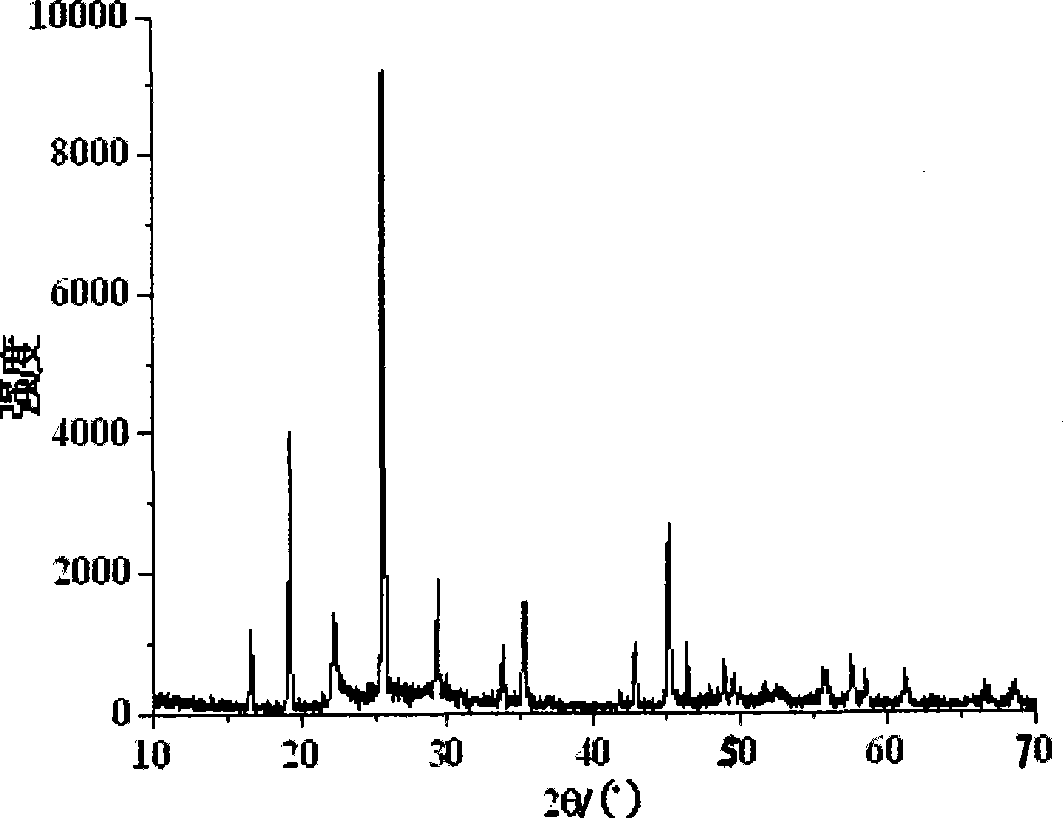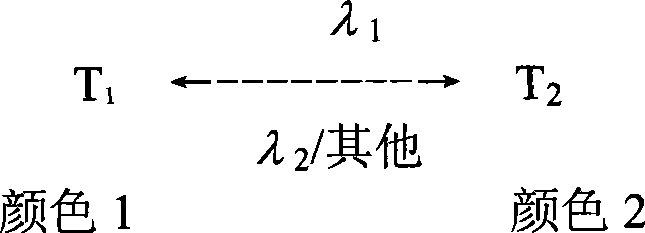Method for synthesizing photochromic nano MoO3 powder by hydrothermal method
A technology of causing color change and powder, which is applied in the field of synthesizing MoO3 nano-powder, which can solve problems that have not been reported yet, and achieve the effect of easy operation conditions, easy reaction, and realization of operation conditions
- Summary
- Abstract
- Description
- Claims
- Application Information
AI Technical Summary
Problems solved by technology
Method used
Image
Examples
Embodiment 1
[0023] First, using sodium molybdate as molybdenum source, prepare 1mol / L Na 2 MoO 4 solution 50ml, and under the action of a magnetic stirrer, HCl was added dropwise to adjust the pH value of the solution to 1.0. Secondly, the obtained reaction system was stirred and homogenized for 4 hours, then transferred into a hydrothermal kettle, and subjected to a hydrothermal reaction at 120° C. for 48 hours. Afterwards, collect and wash the product powder: wash the reaction product repeatedly with distilled water until the pH of the supernatant is between 6.5 and 7.5, and then wash it with absolute ethanol to remove residual water-soluble impurities. Finally, put the reacted powder into a vacuum drying oven to dry for 1 h under the conditions of a vacuum degree of 0.085 and a temperature of 50°C. Utilize the SC-80C automatic colorimeter (Beijing Kangguang Instrument Co., Ltd.) to measure the powder with an ultraviolet lamp (Z-F-20C dark box type ultraviolet analyzer (Shanghai Baosh...
Embodiment 2
[0026] Different from Example 1, the pH value of the adjustment reaction system is 0.5, and other conditions are the same, the prepared MoO 3 The change of the color difference value of the nano-powder before and after being irradiated with ultraviolet light for 5 minutes is 21.2721, and the powder turns blue. The color fades after 1.5 days in a dark place.
Embodiment 3
[0028] Different from Example 1, it means that the prepared MoO 3 The nano-powder sample was tested for its photochromic performance between 12:00 noon and 14:00 on a sunny summer day in southern China. The change in chromaticity value before and after 5 minutes of light was 15.3812, and it faded after being moved into a dark place for 2 days.
PUM
| Property | Measurement | Unit |
|---|---|---|
| Grain size | aaaaa | aaaaa |
Abstract
Description
Claims
Application Information
 Login to View More
Login to View More - R&D
- Intellectual Property
- Life Sciences
- Materials
- Tech Scout
- Unparalleled Data Quality
- Higher Quality Content
- 60% Fewer Hallucinations
Browse by: Latest US Patents, China's latest patents, Technical Efficacy Thesaurus, Application Domain, Technology Topic, Popular Technical Reports.
© 2025 PatSnap. All rights reserved.Legal|Privacy policy|Modern Slavery Act Transparency Statement|Sitemap|About US| Contact US: help@patsnap.com


